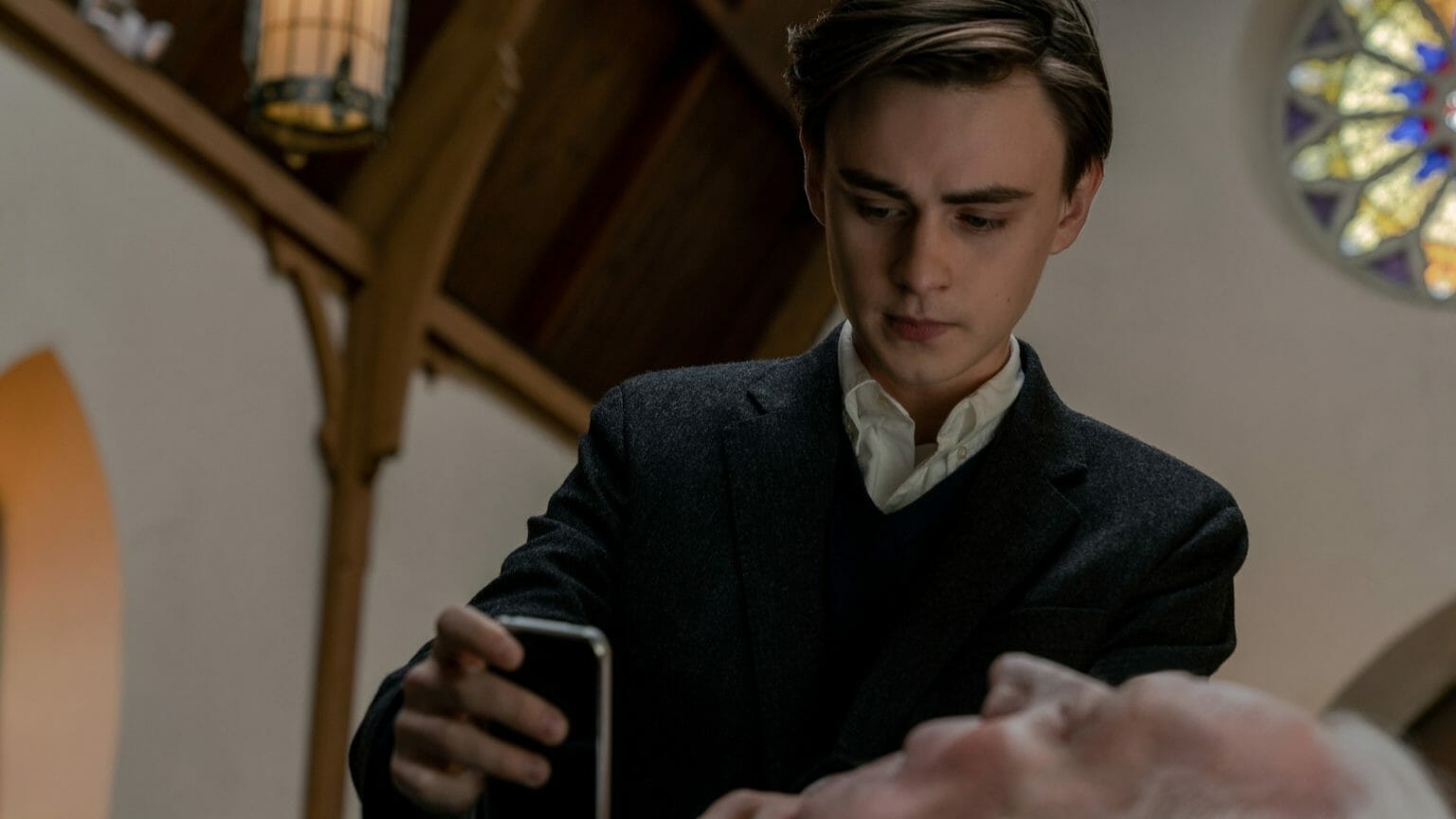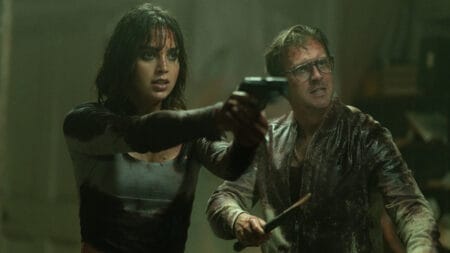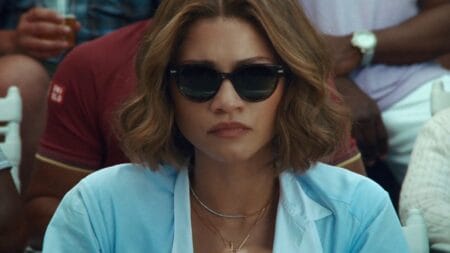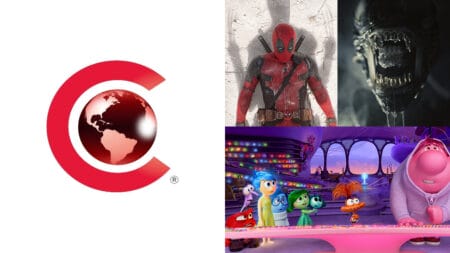At only nineteen years old, Jaeden Martell has already worked with some of Hollywood’s most acclaimed filmmakers and fellow actors. He landed his first film role in 2014 with St. Vincent, where he starred alongside big names like Bill Murray, Melissa McCarthy, and Naomi Watts. He then quickly made his way through the ranks, going on to star in films alongside Clive Owen, Bradley Cooper, Rachel McAdams, Emma Stone, Chris Evans, Michael Shannon, Kirsten Dunst, Adam Driver – the list goes on.
But Martell truly began to carve a lane for himself once he landed the lead role of Bill Denbrough in the 2017 adaptation of Stephen King’s It, a massive box office and critical smash hit that immediately cemented itself within pop culture. Martell then continued to wade a bit deeper into the dark waters of horror with 2019’s The Lodge and reprised his role as Bill that same year in It: Chapter Two. He’s most recently appeared in Rian Johnson’s Knives Out as part of its all-star ensemble cast, played the titular role in the Apple TV+ miniseries Defending Jacob, and rocked hard on the drums in the coming-of-age music film Metal Lords.
The young rising star now finds himself back in the terrifying universe of Stephen King, co-starring with none other than Donald Sutherland in a film adaptation of Mr. Harrigan’s Phone. Based on the novella of the same name from King’s If It Bleeds collection, Martell plays Craig, a troubled kid who forms an unlikely friendship with an elderly man in his town, Mr. Harrigan (Sutherland). The two grow close and when Mr. Harrigan passes away, Craig leaves a treasured cell phone with him to be buried with. But when that number begins calling Craig from beyond the grave, terrible things start to befall certain people in that small town.
In honor of Mr. Harrigan’s Phone hitting its Netflix streaming release, we sat down with Jaeden Martell to discuss the challenges of playing this particular, distressed character and working alongside a legendary actor like Donald Sutherland and an acclaimed director like John Lee Hancock.
Exclusive Interview with Jaeden Martell for Mr. Harrigan’s Phone on Netflix
This is the second film based on a Stephen King story that you’ve done now. Are you a Stephen King fan at all? Have you become one from either of these projects?
Jaeden Martell: I’ve definitely become a bigger fan over time. Of course, I love that the films are adapted from his books. Since working on It, I’ve read the book and now If It Bleeds, and also I read his book On Writing, which is one of my favorites. Yeah, so I’m a huge fan. He creates these brilliant universes, but I think what makes him special are his very human characters.
Do you think there are any similarities between It and Mr. Harrigan’s Phone?
Jaeden Martell: What he’s a master at is, you know, the supernatural, horror, or the suspense, it’s all just a backdrop for these very complex characters. I think the main focus of this film, in particular, is the relationship between Harrigan and Craig, the evolution of that relationship, and the evolution of Craig as a human. I think that’s what makes the suspense and the horror more impactful because the audience cares about these characters first and foremost. And the stakes are raised because of that.
A lot of your projects have felt like ensemble pieces – like It, Knives Out, and Metal Lords. Do you feel like Mr. Harrigan’s Phone is the same? Or do you feel like this was more of a solo role?
Jaeden Martell: No, it’s all the same where, I mean, as an actor, you have to rely on other people. You have to rely on other actors. Nothing’s solo really. I’m even relying on the crew and the director and the writing. No (chuckles), it’s very much a thing of, well it sounds so annoying to say, but acting is reacting (laughs). So typical, but it is true, you know? That is life. You’re reacting to things. No, this is no different. And this is even more special because I’m working with Donald Sutherland and that was a very special collaboration.
Do you enjoy the horror genre? Or are you someone that typically avoids watching scary movies or scary things in general?
Jaeden Martell: I avoid it at all costs. I’m just scared in general, I can’t get into horror whatsoever (chuckles).
Do you have any interests in the industry beyond acting? In the future, would you be interested in directing or writing or anything like that?
Jaeden Martell: Yeah, all of the above. I’ve always been in love with film as a whole and just the entire process. I do write a lot and I actually directed a short film that nobody knows about (laughs). But yeah, it’s always been a passion of mine and I’m very fortunate because I get to learn from people like John Lee. I’m secretly analyzing him as we’re working.


Yeah, that was actually going to be my next question. What was it like working with John Lee Hancock, who’s directed plenty of great films?
Jaeden Martell: He’s incredibly kind, and he has a lot of love and passion for film. Actually, a story that the producer Carla Hacken told me was that she was trying to problem solve with John and our DP and they were trying to figure out the best solution to this one problem. She and the DP were like, “John, it’s up to you. At the end of the day, it’s your decision. You’re the boss, you’re the director,” but he was adamant. He was like, “No, the best idea wins.” That very much sums up his approach to everything. He’s very open and there’s no ego. Despite him being very brilliant and always having the answers, he’s very collaborative.
What were some of the challenges, if any, that you faced during this production? Were there any parts of Craig that you found difficult to tap into? Or that required a little further research or practice?
Jaeden Martell: Yeah, one of the things that I had to be aware of at all times was the mental space he was in and to keep in mind his age because he goes from around 14-15 to 18. I always needed John Lee to remind me where he was at that point in the story because we were jumping around a lot. So that was a bit challenging.
Also, it’s something that I always need to work on, this one thing of like, being aware. We talked about this a lot, of how his posture changes, the way he speaks, and his attitude towards life – not just based on the events that happen in the movie, but because of his age and how normal people, how everyone, grows so much in that time span. It was a little bit of a challenge to be aware of that and to make conscious decisions.
It’s hard to make conscious decisions as an actor when you’re in it. Beforehand, it’s always easy to be like, “Oh, I’m going to change the way I walk.” I had so many ideas but when I was in it, it was just hard to make those decisions and be deliberate. I don’t know if I’m honest with you, but I don’t think I did that to the best of my abilities. I didn’t make those decisions. But, of course, you have someone like John guiding you through it. And you have the writing to guide you and the wardrobe and everything like that. So it ended up working out. But that was one of the biggest challenges for me, I think.
I like stories like this that cover a span of years, as opposed to a couple of days because you really get to see a fuller kind of journey. You said that while filming you jumped around a lot, it’s not necessarily chronological. I know that’s a benefit for a lot of actors that do stage acting. I’m wondering if you have any interest in performing on the stage or if you’ve already done so?
Jaeden Martell: No, never. More and more I become sort of attracted to the stage. Especially, honestly, working with Donald. He is definitely an advocate for the theater and he outright told me that I should do it. That it would be beneficial. After he wrapped filming, he actually sent me this beautiful text. And at the end of the text, he gave me a list of plays to read and rehearse. Which is kind of amazing and it’s nice to have some homework to do as an actor.
Acting is, you’re a professional human being, so you can’t really… so I’m like, never not working on it. Working on it is just being present and being human. But the way that Donald approaches it, and the way that these theater actors approach acting, it’s an art form that they can work on. And I really respect that because there’s so much passion that goes into it. So I think I do, eventually, one day want to delve into theater.
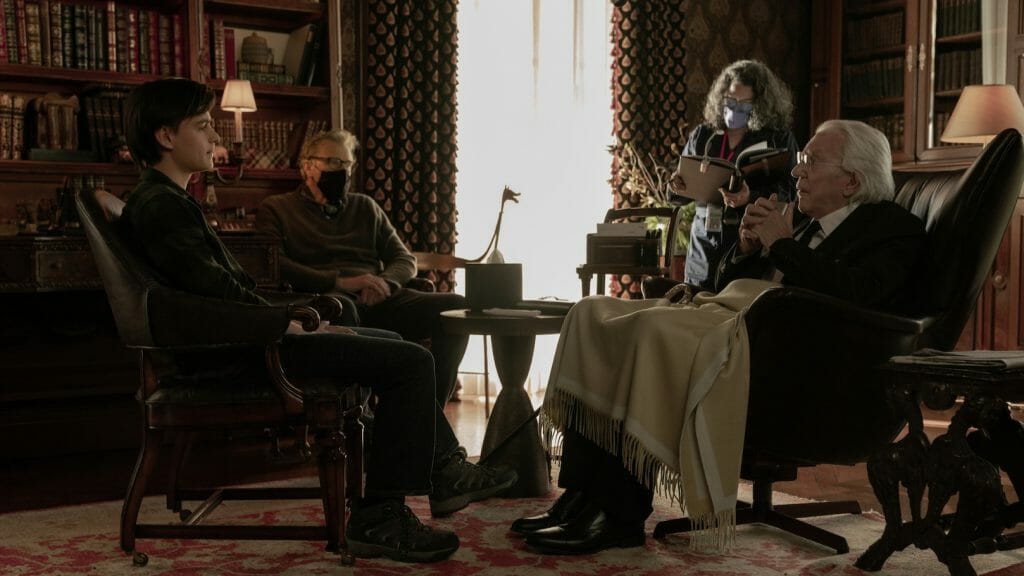

What do you hope people take away from this film? What do you feel Mr. Harrigan’s Phone Is about?
Jaeden Martell: I think it’s… we say a lot about technology and the dangers of it, but the way that John Lee and Stephen King, the way that they approached the story wasn’t very preachy. It was very much unbiased – where in the character Craig, he is definitely a proponent of technology and honestly feels a lot of guilt towards the end of Harrigan’s life for attaching him to technology. And then also, I mean, he, Craig, outright wants an iPhone to literally sit with the cool kids at lunch.
At first, I questioned that decision to even, in my mind, to put that in the script, because what are you saying? This character is not really taking a stance on it, but you have to learn, and he learns eventually, that you can’t rely on it. But he also accepts it as part of life. You can’t go off the grid. It’s there. And it’s part of everyone’s life. But it’s good to take a step back and be present and understand the dangers of it. But it’s not about outright avoiding it, because it is part of life now. So there’s balance. It’s all about balance.
Before I go, I was wondering if you could share anything or tell us what is exciting to you about the upcoming The Lost Boys remake that you’re starring in with Noah Jupe? I’m excited about that.
Jaeden Martell: Thanks. Gosh, I don’t know. I know as much as you do, to be honest. It’s a very mysterious project. We’ll see. Yeah, we will see. I can’t tell you anything else.

